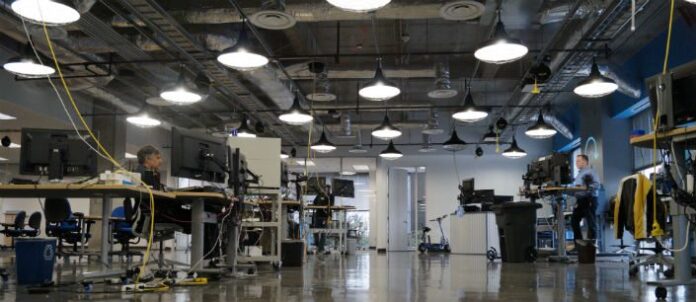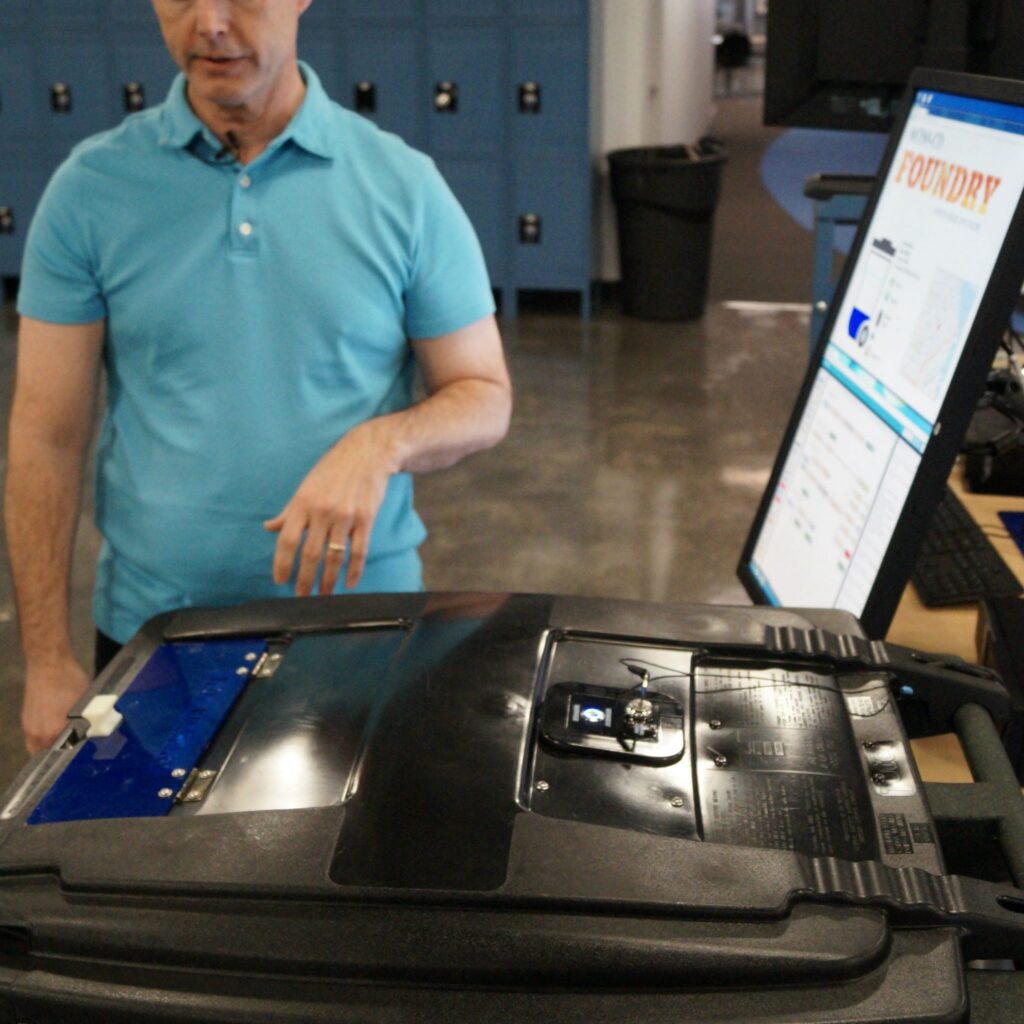AT&T Foundry leading the way IoT, M2M
As the “Internet of Things” becomes a reality with the number of connected devices projected to hit 25 billion by 2020, the research and development team at AT&T’s IoT Foundry in Plano, Texas, is working hard to lead the way.
On a recent tour of the facility, IoT Foundry Director Craig Lee showed RCR Wireless News a connected trash can designed to bring efficiency to waste collection.
Lee explained how the Foundry team put a 3G cellular modem linked to an ultrasonic sensor designed to measure trash levels into the otherwise run-of-the-mill receptacle.
That data is fed into a virtual machine and processed, then displayed on a dashboard that graphically shows the amount of trash in a given bin, which can also be geo-located using GPS.
“What you’re going to see is actual data coming out of a 3G radio that’s inside this device. It’s being processed through a product we developed. We’re developing a back-end dashboard … to show information about this particular device.”
Lee said the device could be used by large-scale waste-handling firms to monitor trash levels and dispatch pick-ups on an as-needed, rather than recurring, basis.
“If I’m the people who pick up the trash for a living,” he said, “I now know exactly what’s in this bin and can include it in the next day’s pick up.”
The AT&T Foundry program was launched in 2011. The Plano operation, focused on IoT, opened in 2012. The other labs are located in Atlanta, Palo Alto, Calif., and Ra’anana, Israel.
Since its inception, the Foundry operation has worked on hundreds of projects yielding dozens of new products and services.
The company pegs the investment, in partnership with sponsors Ericsson, Alcatel-Lucent, Amdocs, Cisco, Intel and Microsoft, at some $100 million.


